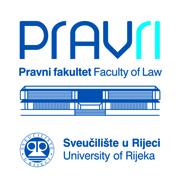DEFINING CITIZENS IN THE KINGDOM OF SHS YUGOSLAVIA (1918-1941): THE CASE OF CROATIANSLAVONIAN AREA
DOI:
https://doi.org/10.30925/zpfsr.39.2.4Keywords:
determination; national citizenship; local citizenship; Croatian-Slavonian legal area; the Kingdom of Serbs; Croats and Slovenes; the Kingdom of YugoslaviaAbstract
The paper deals with initial definition of citizenry on Croatian-Slavonian area in the First Yugoslavia. The research relies in great measure on archival research available in the Croatian National Archive. In the paper, the author elaborates few theses. The first one is about local citizenship as fundamental criteria for determination of citizenship in the first years of the Kingdom of Serbs, Croats and Slovenes. Further, the author elaborates thesis about peace treaties as a crucial moment that negated relevance of local citizenship for determination of national citizenship if acquired after January 1 of 1910. The author argues that this rule as well as initially restrictive rules about local citizenship enabled administrative authorities of the First Yugoslavia to question
national citizenship of many persons, especially ones who moved in Croatia-Slavonia from Hungary. According to the author, the authorities significantly widened citizen’s body in 1928 when the law about citizenship of the Kingdom of Serbs, Croats and Slovenes entered into force. This inclusion however in great measure favored ethnic Serbs, Croats and Slovenes.
Additional Files
Published
How to Cite
Issue
Section
License
Collected Papers is an open access journal. Journal does not charge article processing charges (APC) to authors. It is licensed under CC BY-NC licence 4.0.
Collected Papers of the Law Faculty of the University of Rijeka" is an Open Access journal. Users are allowed to read, download, copy, redistribute, print, search and link to material, and alter, transform, or build upon the material, or use them for any other lawful purpose as long as they attribute the source in an appropriate manner according to the CC BY licence.
The papers published in "Collected Papers of the Law Faculty of the University of Rijeka" can be deposited and self-archived in the institutional and thematic repositories providing the link to the journal's web pages and HRČAK.
Upon acceptance of the manuscript for publication by this journal, the author can publish same manuscript in other journals only with the permission of the Editorial Board (secondary publication). A repeated publication should contain a notice as to where the manuscript was originally published.



